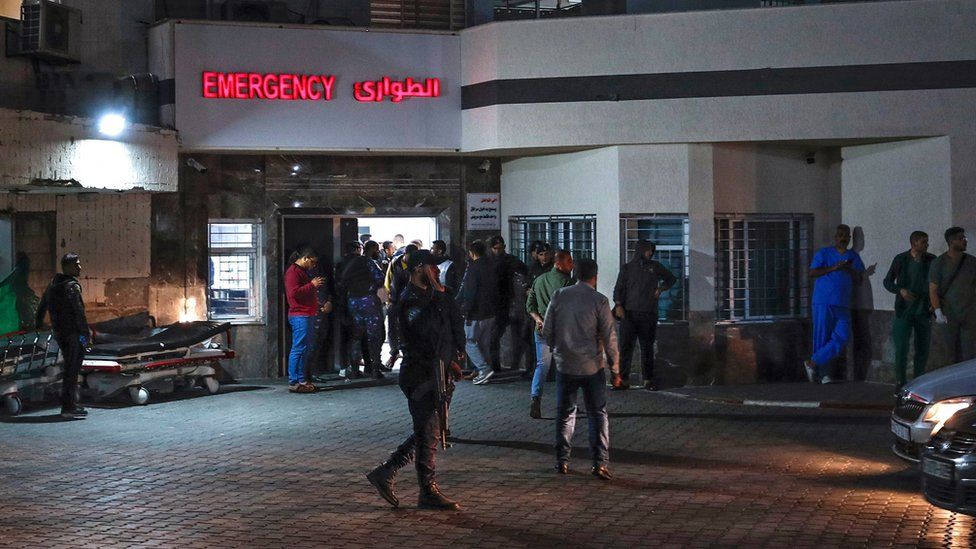A British surgeon on a charity trip to Gaza has described how constant shelling from Israel forced him to cancel all his scheduled operations.
Abdul Qadir Hammad was there with the Liverpool International Transplant Initiative, which helps people with no access to critical medical care.
He was due to perform surgery on Saturday – the same day Hamas militants launched a deadly attack in Israel.
Israel has launched air attacks on Gaza in retaliation.
Doctor Hammad said there was no inkling of what was to come on Friday when he went to check on his patients at the Al-Shifa hospital – the largest public healthcare complex in the Gaza Strip.
He has been visiting the Gaza strip for decades to help patients there.
But he said things took a sharp turn on Saturday, when he “woke up to sounds of explosions the next morning.”
“I immediately [contacted] the director of Al-Shifa hospital and asked if it was still safe to do the operations, who said yeah, I think it’s okay,” he said.
“But then within 20 minutes looking at the news, it was clear that this was not the case,” he said, adding that they were forced to cancel all the scheduled operations.
Fearing for his safety, he made contact with the World Health Organisation and was told that it was not safe for him to remain in the hotel.
“There have been continuous airstrikes and shelling since then,” he told the BBC’s Newshour radio programme from a UN facility where he and about 20 other foreign nationals have been living in since Sunday.
Shutting off electricity, food and water will be “devastating for the civilian population and the hospitals,” he said. “It will cause a humanitarian disaster.”
While many human rights and aid organisations have criticised the Hamas militants’ indiscriminate attack, they have also raised concerns about Israel choking vital food and energy supplies from entering Gaza.
“Kidney failure in any part of the world puts a lot of burden on the patient,” Dr Hammad said, “But in Gaza, in fact, it is life threatening. Kidney transplants are life-saving for these patients.”
His own safety is also a concern, he said, adding that he’s thinking about his family in the UK.
A UN official told them that crossing into Israel would be difficult because of the conflict. The only safe way for them to leave Gaza is to arrange a safe passage to Egypt, but that will require complex negotiations and negotiations with the Israeli and Egyptian authorities, the official told them.
While concerned, Dr Hammad said the facility where he is in is relatively safe, stocked with electricity, food, water, and even the internet.
But he is worried about the people out in Gaza without access to these things, and pointed out the irony of why he went to Gaza in the first place.
“When I come here, my aim is to save three, four, maybe five lives by doing kidney transplants. But it is easy to kill 2,000 people in two days,” he said
“Sometimes you say what’s the point of doing all this.”

More on Hamas-Israel attacks
- Follow live: Latest updates
- Bowen: Israelis, united in shock, rally behind war on Hamas
- Iran: Did Iran support plan for attack on Israel?
- Festival: Verified video and social media reveal how massacre unfolded
- Explained: What’s going on in Gaza and Israel, and why now?

